Vicki J Kondelik
Library Blogs
Showing 1071 - 1080 of 2007 items
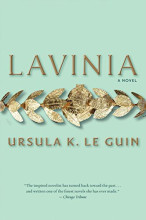
In Lavinia, Ursula K. Le Guin, author of the Earthsea series and many other works of science fiction and fantasy, gives voice to a forgotten character from Virgil's Aeneid. Lavinia, daughter of King Latinus of Latium, rejects all her suitors because of a prophecy that says she's destined to marry a foreigner. When Aeneas and his fellow survivors of the Fall of Troy arrive in Latium, she knows he is the man she's meant to marry, but one of her suitors, Turnus, has other ideas, and they fight a war over her--a war she never wanted. Le Guin writes beautifully of ancient Italy, and especially of its religious rites and ceremonies.
•
Design lab intern Carol Zhang shares her thoughts on a stress management workshop she attended.

Like many academic research libraries, the University of Michigan Library has a promotion process for its librarians. And, like many libraries, the policies need to be reviewed on occasion. The Promotion and Appointment of Librarians (PAL) Task Force was charged by the Librarians’ Forum with reviewing our promotion process and making recommendations to better align what we do with the goals of both individuals and the Library. This Task Force utilized various qualitative and quantitative research methods to get the best data (described below).
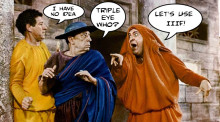
A Funny Thing Happened on the Way to Our Next-Gen Digital Collection System is a musical with music and lyrics by...oh no wait, it's the story of two departments within Library Information Technology filling gaps and solving problems with a minimum of outlay to maximal effect. And maybe one or two funny things that happened. On the way.
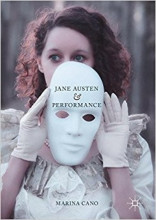
Jane Austen in Performance is a study of Jane Austen's enduring popularity, from the 19th century to the present day. Author Marina Cano discusses such topics as the use of Jane Austen by the women's suffrage movement, Austen's popularity during and immediately after World War I, film and theatrical adaptations of her works, and fan fiction based on her novels.

An Asia Library librarian is a member of an exciting Humanities Collaboratory project, Hyecho's Journey.
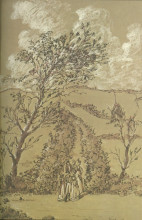
Special Collections is pleased to announce the opening of The Life and Times of Lizzy Bennet, a new exhibit in the Audubon Room. This exhibit commemorates the bicentennial of Jane Austen’s death by exploring the historical context in which her characters lived. Join us for the opening celebration next week on Thursday, November 30th, 4:00-6:00pm in the Hatcher Gallery. Light refreshments will be served at 4:00pm and curators Juli McLoone and Sigrid Cordell will begin their lecture at 4:30pm.
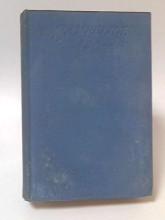
This historical novel, originally published in 1936, tells the story of Luisa Sanfelice, an impoverished noblewoman in Naples, Italy, at the time of the French Revolution. When revolutionaries briefly take over Naples and overthrow the king and queen, Luisa, a woman of no strong political beliefs, inadvertently becomes a heroine of the revolution when she warns her revolutionary lover about a royalist plot to re-take the city. Much violence ensues, and Sheean's descriptions are not for the squeamish. But Sanfelice makes for a compelling read. The heroine's story has been told several other times, most notably by Alexandre Dumas.

The Digital Content & Collections department begins an ambitious full audit of our 280+ digital collections. In this first in a blog series about the endeavor, I note why we are doing this, how we surveyed the digital landscape, how we cemented alliances with others who will help us along the way, and where we're heading next.
•
Design Lab Resident Chris Karounos participated in this year's United Nations climate negotiations in Bonn, Germany as an observer delegate. Here he shares some reflections and in interview with the Secretary of Foreign Affairs for the Marshall Islands.